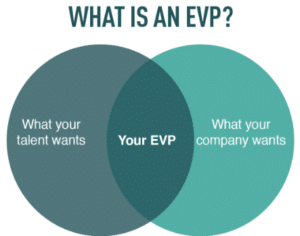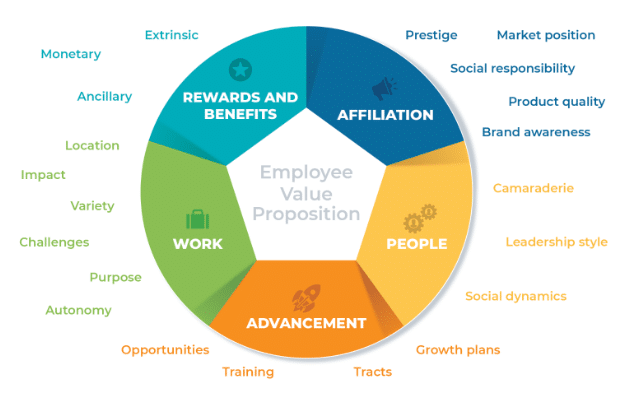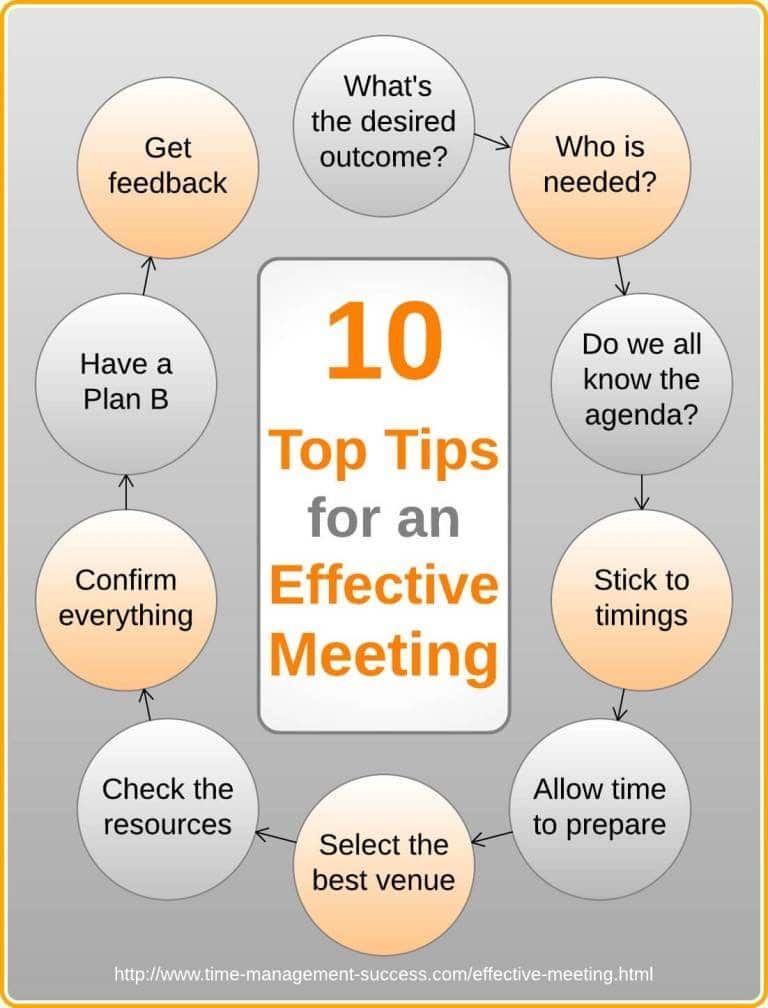Refine your search
Chris Potter
Running Effective Sales Meetings
Running Effective Sales Meetings
Anyone who runs or attends a sales meeting will get home and be asked ‘how did it go?’ and you have to avoid the answer being ‘it was a waste of time’. Whether it’s your first time planning a sales meeting agenda or your 100th, we hope to share some tips from our experience and from Salesforce.com that might help you to get the most from your meetings as this is a skill that top Sales Managers should have.
Why hold a sales meeting?
As a sales leader, meetings with your whole team should be a valuable health check for your business. You can pass down company news and hear what is happening on the ground. Your team can bond, share ideas, learn, hear and be listened to. The sales leader can spot challenges, opportunities, emerging talent and threats.
But the time spent preparing for, conducting and following up has a cost and you need to ensure it has meaning and value. This starts with the agenda.
 What is a sales meeting agenda?
What is a sales meeting agenda?
A sales meeting is an internal check-in between sales leaders and practitioners at a company and meant to give sales team members the information they need to do their jobs well. Typically the Sales Manager will run the meeting and Sales Representatives and Agents will attend.
Leaders highlight important updates that could include:
– Current company-wide sales performance
– What’s top of mind for the business
– Competitive insights
– What the team’s next priorities should be
The next 10 tips will help you stay on track, show respect for your team, and be as efficient as possible in your sales meetings.
-
Simplify the agenda and goal
Make sure you and your team know what you’re meeting about in crystal-clear terms.
Don’t call your salespeople together without a clear agenda and a few simple objectives. Pulling salespeople into a meeting takes them away from revenue generating tasks and their time should be respected.
Once you’ve developed your agenda and goals, decide who the best person will be to speak to each topic.
Work with presenters in advance to answer these questions:
– Who will kick off the meeting?
– Who will present?
– How will you handle transitions?
– Will you save questions for the end or answer them throughout?
– Is there a key call to action (CTA) you want every meeting attendee to take?
Send the agenda to attendees ahead of every meeting. It can be a loose outline, but this will show everyone that you’re focused on making solid use of their time.
-
Troubleshoot technology
Whether you are presenting virtually or in person, test the technology and your ability to use it in advance. Assemble the presenters early. It may only take 10 minutes, but it pays off in dividends. If it’s just you running the meeting, you can do the same thing on your own: Test your equipment and go through the presenting motions just as you would during the real thing.
-
Start — and end — on time
Respect your team’s time by keeping the meeting on schedule. Your attendees will have made other arrangements based on the scheduled finish time and too many sales meetings end weakly because people have to drift off to meet other commitments.
If you notice meetings go over, revisit your agenda by asking for attendee feedback to learn which topics are most valuable. You don’t want to cut important conversations short, but you also need to keep an eye on time, and this is a delicate balance.
-
Choose the right frequency
Make the meeting count. If you just need to broadcast information, could you do it in an email rather than getting the whole team together?
If you are covering the same information in every meeting, it is probably too frequent. Don’t feel pressured to meet every time you planned to. If you cancel a meeting because you have nothing to share, this time can be given back to the team and they will appreciate that you’re not holding meetings just for the sake of it.
-
Brief the team
As the leader, it’s your job to update the team on anything you’ve learned that might not have been passed down to them yet, especially if it’s been a while since you last met.
Brief everyone on any pricing changes, stock availability, marketing initiatives, product news, leadership shifts or other integral information that could affect how they sell. Follow up on any issues or questions from past meetings, too. This part of the sales meeting may run for different amounts of time, and if the topic has the potential to run too long, consider having a special sales meeting with only that item on the agenda.

-
Ask the team to discuss their updates and obstacles
When you are all together in a sales meeting, it’s often helpful to have everyone share what’s working and what’s not. Touch base on leads and accounts, how key conversations are going, and everyone’s overall status report regarding hitting their targets and KPIs.
On top of progress, listen for any roadblocks. As a manager, if members of your team are hitting roadblocks, you need to be aware so you can help clear the path.
Once you know what’s going well and what needs additional focus, you can develop an action plan with individual team members or a larger group.
-
Amplify key wins
Did a team member open a new account? Exceed their target six months in a row? Set aside time in your sales meeting agenda specifically to give them kudos. Not only do people often appreciate being recognised, it’s good for the entire organisation.
Recognition is a good motivator for both the individual being recognised and the team. A survey from the Society for Human Resource Management (SHRM) and Globoforce shares that “68% of HR professionals agreed that employee recognition has a positive impact on retention and 56 percent said such programs also help with recruitment.”
Be specific in your praise, too. Saying you appreciate that someone took the time to onboard a client who needs more attention than usual will mean more than a generic “good job.” Of course, not everyone likes being publicly singled out, so make sure you’re giving team members credit in the formats they prefer. You can vet this with each rep in one-on-one meetings.
-
Make space for ideas, questions, and collaboration
Your sales meeting agendas should always include time to exchange thoughts as a group. These meetings aren’t only about what you want to communicate; they’re also a way for team members to learn from each other and build on one another’s best practices.
For example, you may invite brainstorms on:
– Who is achieving best results on new product sales and how?
– What are the biggest objections and how do we overcome them?
– Where are our products in their lifecycles? What’s hot and what’s not?
– What additional support could be provided by the company?
– What are our competitors doing?
– Shaping goals for the next quarter or year
-
Decide on next steps
As you work through each item on your sales meeting agenda, clarify any action items and who’s responsible for following up on each. No one should leave the meeting feeling ambiguous about next steps.
Team members can be responsible for following up with their own prospects and customers. However, the sales leader should take responsibility for department-wide needs raised during the meeting. Make it clear which updates you want the team to bring to the next meeting and always make sure you do what you say you are going to do.
-
Motivate the team

Sales can be hard. This profession is marked by a lot of rejection and patience, and mistakes will be made from time to time. Sometimes the market slows down and prospects just aren’t biting. No matter the reason why times are tough, the team as a whole — or individual sales reps — will struggle sometimes.
During these times, it’s your opportunity as a leader to address issues head on and communicate authentically with the team. If you share why you’re still inspired and motivated about the team’s work, others will be motivated, too. Carve out time in your agenda to do that when times get tough.
And in easier times, use fun and positive ways to motivate your team. Events such as meals, bowling, escape rooms, driving ranges, comedy shows are good ways to say thank you and bond your team such will support each other.
Tough times don’t last, but tough sales teams do.
It goes without saying that your sales meetings can only do so much to inspire your team and sometimes you will identify gaps that can only be met with fresh recruits. You might be interested in our articles about Interviewing techniques and improving your appeal as an employer. Please Contact Us if we can offer any support or advice on any of these topics.
What qualities do great Sales Managers have?
In our 30 years of working with Sales Managers we have encountered some of the best and worst examples! We thought it would be useful to provide some Insight into the qualities of great Sales Managers for anyone who aspires to become one. If that is you, you might be interested to visit our job page.
Introduction
Sales management is a specific form of leadership focused on motivating a team to achieve defined sales goals. It involves setting clear objectives, providing inspiration and guidance, and monitoring progress. Successful Sales Managers possess strong communication and problem-solving skills, as well as an understanding of marketing and customer relationships. Most importantly, they will be able to lead by example. You need to be able to walk your talk as a Sales Manager!

What is Sales Management?
Sales Management is the ability to motivate and direct a sales team to optimally reach its defined objectives. It is a creative and inspiring way of leading a team to success, which involves focusing on customer satisfaction, employee engagement, and a positive company culture. Sales leaders are responsible for setting and communicating objectives, providing feedback, coaching and maintaining high performance standards for the team.
Benefits of great Sales Management
Improved Sales Performance
Sales leaders are responsible for inspiring and motivating their teams to reach their sales goals. They provide guidance and direction and foster an atmosphere of collaboration and accountability. Done properly, this will lead to improved sales performance, with better results. What gets measured gets done!
Enhanced Customer Service
Through effective hands-on coaching and providing the right resources, sales leaders can help team members deliver excellent customer service. This will result in improved customer satisfaction, retention and, in turn, higher sales results.
Improved Employee Retention
When you have a team of motivated and engaged employees, they are more likely to stay with the company in the long run. This has the benefit of reducing turnover costs and providing a steady source of reliable talent.
Steps for Harnessing the Power of Sales Leadership

Establish Clear Goals
The first step is to establish clear and measurable goals. The goals should be aligned with the company’s mission and objectives and should be communicated clearly to the sales team. To ensure success, you should also identify your ideal customer and your target market.
Communicate Effectively
Effective communication is essential to sales leadership. The sales Manager should use clear and concise language when communicating with team members and should always be open to hearing any feedback or suggestions from the team.
Encourage Collaboration
Fostering a team spirit is essential for successful sales leadership. Encouraging collaboration among team members helps to create a sense of unity and raises productivity levels. Sales Managers should also promote open communication and encourage team members to share information and ideas. Celebrating success is also an important way to motivate the team and keep morale high.

Lead By Example
The Sales manager must demonstrate the right behaviour and appropriate decision-making. This includes setting an example of dedication and hard work, as well as being a role model for team members. Showing commitment to the team and the goals is an important part of successful sales leadership.
Provide Support
Finally, Sales Managers should be available to their teams and provide ongoing support and coaching. Provide clear and constructive feedback and be sure to offer recognition when achievements are made. Having a supportive and encouraging team atmosphere is important for successful sales leadership.
When team members feel appreciated and supported, they are motivated to perform at their highest potential.
Conclusion
Our experience is that great Sales Managers find it easier to recruit and retain high performing sales people. They want to coach their team members to be the best they can be and encourage them to strive to reach their career goals even if this means that they will eventually move on. Conversely, this attitude tends to make people stay. Sales people tend to be motivated by success, recognition and financial reward. Great Sales Managers recognise this and celebrate all successes, remember to say Thank You and ensure that targets are realistic in order that financial rewards come to those who deserve them. If you are looking for a new role as a Sales Manager or new people to join your team please Contact Us to take the next step.
Unless you are in HR you will be forgiven for never having heard of an EVP, but if you are job seeking or recruiting you should find out more. Many smaller companies have plenty of offer but struggle to describe it and lose the fight for talent to larger employers. Many job seekers don’t know what to look for in their next employer. An EVP will help.

An EVP is different to a company’s Employer Brand which focuses on the external personality a company presents to the labour market. An EVP is an internal promise that an employer makes to its employees in return for their skills, experience and commitment. Having a strong EVP will help you recruit and to retain the talent that you need. If you get it right, it means increased length of service and less time and money spent on recruitment.
How do you create an EVP?
This is best done in consultation with all employees. Ask your colleagues why they joined the company and why they stay? How do they describe the culture? How do people feel when they come to work? Does the company have core values? What is the feedback from exit interviews?
List all the elements of the reward package and benefits that you offer to your staff. Include everything – salary, bonus, company car schemes, cycle to work, gym membership, healthcare, free parking, safe cycle storage, showers, access to transport networks, air conditioning, free biscuits … it all counts.
Ask your customers and suppliers how they feel about you? How do they describe your approach to business?
This will help you to:
- Know your values. Be clear about your company values and how they translate into the working environment.
- Be honest and transparent about your core values, benefits, and the type of employee best suited to work at the company. Your EVP is not meant to be for everyone, only those that would best fit the business.
- Give examples. Back your statements up with evidence. If, for example, your organisation values people development, provide concrete examples of initiatives that support this.
- Highlight what makes your EVP unique. Your employee value proposition showcases your competitive advantage when attracting top talent. Use this opportunity to highlight what makes working at your company different from others within your market.
Who does this best?
If you are an employer that needs to strengthen its EVP. We are happy to guide you. Please Contact Us for more information.
 It will be no surprise to hear that you can find great examples at Google, Microsoft and Apple with generous financial benefits and employee experiences. But your firm can do this brilliantly too.
It will be no surprise to hear that you can find great examples at Google, Microsoft and Apple with generous financial benefits and employee experiences. But your firm can do this brilliantly too.
Think about how you can describe your company, its reputation, your purpose, how you communicate, employee feedback opportunities, your reward package, benefits, car policy, long-term incentives, flexible working (part time / full time), agile working (office based / home based), onboarding process, training, opportunities for study leave or personal development, corporate and social responsibility, equality, diversity and inclusion, social experiences, family values, carers leave, maternity and paternity support and opportunities to progress.
If you work through the steps you will have deep understanding of what you offer and be able to articulate this through your internal communication, advertisement texts and ‘careers page on your website. Your staff will be less vulnerable to approaches from competitors and you are more likely to attract the staff you want.
And if all of this makes you feel that you need to work for a company that really understands its EVP please visit our Job Search page for current options.
And finally, here’s one example we like from a company in Norway who really understand what makes them special! Whereby
Is the CPTPP good news for British exporters?
At Cavendish Maine we have been recruiting Export Sales Manager’s for British businesses for decades and were pleased to see recent news reports that the UK is joining the CPTPP, but is it as good as it sounds?
The headline details are pretty exciting. The 11 CPTPP countries (Australia, Brunei, Canada, Chile, Japan, Malaysia, Mexico, New Zealand, Peru, Singapore and Vietnam) account for a population of 500 million consumers that British exporters will be able to access with 99% tariff-free goods making our products less expensive. The UK is the first non-founding country to join making the combined value of the economies of all members around £11 trillion.
What’s the down-side?
It’s going to take a while to feel the benefit. In 2019 the CPTPP countries accounted for less international sales value than we achieved in Germany. Presently the US is twice as valuable to us as all CPTPP countries combined. There are also some risks attached to two-way trade that could, for example, threaten British farming with cheap agricultural imports.

We spoke to the Export Director of a British garden products manufacturer who said…
“The CPTPP deal will have a few benefits, but we are already working within the four largest markets of the eleven countries in the CPTPP and the trade agreement does nothing that outweighs the loss of trade from being a member of the Europe Union”.
Conclusion
The CPTPP was heralded as “a benefit of Brexit” and showed that we are striking out and making our own global decisions. Most commentators believe the deal is a positive step for the UK, and there are benefits to be celebrated – but they are long term for most exporters. However, there will be some companies who will realise an enormous opportunity here. If your company is finding it increasingly hard to remain price competitive in European markets and you have a product that is Made in Britain, this might be the time to switch focus on the CPTPP countries.
We work with many medium sized British businesses that tell us that their export success depends largely on the people in that team. The knowledge of how to open and build international markets is paramount and this includes knowing how to utilise the Department for International Trade and sector specific bodies such as Gardenex. If you feel that your export sales could be improved by strengthening the talent in your team, please Contact Us to discuss how we can help.
What are the attributes of top sales people?
If you are in sales, your career depends on your ability to motivate customers to act and purchase products. To be successful you need to have certain qualities. Some of these are easier to learn than others but all can be improved. In this Insight we will introduce five of the most important traits that every sales professional needs. If you are facing a Performance Review these are some of the attributes that your boss might be assessing you against.
Trait #1: An Understanding of the Customer
 Understanding the customer is essential. Each customer is different and has individual needs. If you can understand your customer’s challenges, goals and motivations, you will be able to deliver a fantastic customer experience.
Understanding the customer is essential. Each customer is different and has individual needs. If you can understand your customer’s challenges, goals and motivations, you will be able to deliver a fantastic customer experience.
The best way to do this is by asking the right questions. This will help you to understand each customer’s needs and how to best meet them. Active listening ensures that salespeople are truly absorbing the information the customer is providing and the customer feels heard.
Trait #2: Adaptability
Successful sales people are adaptable and are often compared to chameleons in their ability to change their technique to suit their audience. Some customers need data and evidence; some need personal reassurance; some value service over price. Adaptability requires intuition, the ability to ‘read the room’ and good listening skills.
Trait #3: Product Knowledge

Having deep knowledge and understanding of the products you are selling is essential if you are going to meet the needs of your customer. However, the best sales professionals know how to turn product features into the advantages and benefits that their customer really needs. They also understand the most frequent objections they are likely to face and how to overcome them.
Trait #4: Communication Skills
Successful sales professionals possess excellent communication skills in person, via phone or email. A great salesperson will be able to build rapport with the customer and craft a persuasive conversation that will secure long-term sales results.
If you want to improve your communication skills, focus on your listening and questioning techniques. It is also a good idea to improve your storytelling skills. Creating stories around the product to better explain its advantages and to build a connection with the customer is a really effective tool.
Trait #5: Persistence
Sales is often a numbers game and the only way to win is by staying in the game. The most successful sales professionals have the resilience and willpower to never give up.

They understand that every “no” is a step closer to a “yes” and strive to continue even when faced with challenging objections.
Salespeople can improve their persistence by setting realistic short-term goals and tracking progress over time.
It is common to feel frustrated by a run of bad luck. If this happens, remember why you are in sales, take time to celebrate small victories and look for the baby steps that will return you to success.
Conclusion
We have been recruiting sales people for UK businesses for over 30 years and know that the over-riding quality of all great sales people is the ability to make other people like and trust you. If you can do this successfully you will have the opportunity to ask questions, listen to answers and build a selling proposition that will be well received.
If you want to get into sales or feel that your qualities would be best employed in a new role please visit our jobs page for information on new opportunities.
2023 – What Next???
Spring is here, and new year resolutions have long since been forgotten. Performance and salary reviews have been and gone, so what is next for you and your career???
Your New Year resolutions could have included things like.
i) Get better sleep.
ii) Start a new workout routine.
iii) Practice mindfulness.
You may also have found yourself setting some goals around your career, including exploring the employment market.
But you can’t simply wish your way to a more fulfilling career. You have to work at it.
To help you find a position in 2023 that matches your skills, experience and interests, start working toward these job search goals now:

Goal #1: Update your CV and LinkedIn profile
You can probably think of a million things you’d rather be doing than writing a CV. But you’ll do yourself a favour if you have an up-to-date document at your fingertips.
One mistake people frequently make is to wait to revise their CV until they find a job opportunity that interests them. That prevents them from applying for the position right away. And by the time they have an updated version ready to submit, it may be too late. So, don’t delay.
While you’re at it, review your LinkedIn profile and make sure it reflects your most recent professional accomplishments. Your profile is essentially your online CV, and many employers search for candidates on LinkedIn as part of their recruiting efforts. You want your profile to reflect the same information as your traditional CV.
Another advantage of having a polished LinkedIn profile? Recruiters often use LinkedIn to identify passive job seekers. With a solid online profile, you’ll increase the likelihood that a recruiter will take a closer look at you.
Goal #2: Strengthen your skill set
To realise your job search goals, you need to be ready to compete for the roles you want, of course. And no matter your chosen industry or career, developing an in-demand skill or pursuing a certification can help you to stand out as a candidate.
Pursuing professional development shows initiative and a commitment to learning, as well as an understanding of what it takes to excel in your field. It also makes it easier for you to answer the question that all hiring managers are likely to ask in one form or another: “How can you add value to the organisation?”
Possessing certain abilities and credentials can also help you negotiate a higher salary.
Goal #3: Prioritise job satisfaction
It’s a good time to assess your job search goals — as well as your personal aspirations — and determine exactly what type of employment opportunity to seek. Many professionals are doing that as they look ahead to a new year — and leave a very disruptive one behind.
Perhaps you’d like to work in a different industry, for example? Or take on a more fulfilling role with greater responsibility? Maybe you’re looking for a remote work opportunity that provides a flexible schedule? Formulate a clear idea of what you’re aiming for, so you can better focus your search for a new position. 
Goal #4: Audit your online presence
You can assume all potential employers will review your LinkedIn profile (refer to Goal #1). But some will also look at other channels to see if they can form a more complete picture of you as a job candidate. Consider how you present yourself on social media and online forums. You may need to do some digital housecleaning.
Make sure all information is current and accurate and presents you in the best possible light. If there’s anything you wouldn’t want a potential employer to see — photos from a vacation or your unfiltered thoughts about a politician or a sports team’s poor performance, for example — review your privacy settings.
Goal #5: Expand your professional network
Your professional network can play a critical role in your ability to achieve your job search goals. In lieu of in-person networking during the pandemic, look for virtual events hosted by professional or alumni organisations, or other groups relevant to your profession or industry.
Also, reach out to new contacts on LinkedIn and ask trusted colleagues, mentors and friends for their recommendations. Be both strategic and genuine in your requests to make connections. And don’t stop nurturing ties with the professional contacts you already have.
Related: https://www.cavendishmaine.com/potential-pitfalls-of-the-virtual-interview/
Goal #6: Be persistent
Most employers today are taking great care to choose job candidates who are likely to thrive in their unique organisation. So, even if you’re a top candidate for a job, it may take weeks and several rounds of interviewing before you hear back about a final decision.
Don’t get discouraged. But don’t just wait around for an employer to make up their mind. Stay in contact with the hiring manager. Continue networking. Keep applying to other jobs that interest you. And consider building a relationship with a recruiting professional. After all, nothing is certain until you’ve signed on the dotted line.
Best of luck in realising your job search goals — and achieving all your other 2023 goals!
For further help and advice, please do not hesitate to speak to a Consultant at Cavendish Maine.
If you are in a management role you probably interview candidates as part of your job but, in a candidate short market, you need to stand out if you are going to appeal to best talent.
Job seekers like to be interviewed. It gives them an opportunity to shine and differentiate themselves. It also allows them to assess you and your business.
If you want to look like an employer of choice, then making sure your interviewing techniques are up to standard is an essential step in separating you from your competitors. It shows you are selective and, if successful, will make the candidate feel like they have reached a high bar in securing an offer.
Yes, you still need to sell the idea of working for your company. Tell the candidate what they can expect, the challenges, the support, the team and the package as part of your interview plan. If you need any advice in this area please Contact Us.
You might also be interested in our short video clip on Protecting and Enhancing Your Employer Brand through the recruitment process.
However, this article is focused on the interview questions you should have in your mental library so that you can pick the right combination for the role.
Do not try to ask all questions in all interviews!

The Basics
These are low-intensity questions that you might use to get the interview started:
– Tell me about yourself.
– What is most important to you in a work environment?
– What do you know about this company?
– Describe your relationship with your current colleagues.
– What are you most proud of in your professional life so far?
– What do you enjoy doing outside of work?
– How would your managers and co-workers describe you?
– How do you want to be managed?
– Why do you want to work for this company?
– What are your greatest strengths?
– What is your biggest weakness?
– Why do you want to leave your current role or company?
Intermediate Questions
These are a little more challenging, will put the candidate under more pressure and will test their ability to think before answering.
– What is one fact that you haven’t included in your CV, but would love to?
– What is the most recent thing you have learned?
– If somebody asked you to give an impromptu presentation on any topic, what subject would you pick?
– What nonprofessional skill would you most like to learn?
– If the decision was down to you and one other candidate, what would you say to persuade me to hire you?
– Describe a time when you proactively identified and addressed an issue at your company.
– Tell me about a time when you failed to achieve your goals and had to follow a different approach. What happened?
– Walk me through your time management system.
– Imagine you need to implement a new process that you do not have much experience with. What steps do you take to gather information and ensure successful execution?
– Pick five adjectives that best describe you.
Hard Questions
These questions are designed to take the candidate out of their comfort zone and talk about issues that might prefer not to include in an interview:

– What is the most difficult lesson you have had to learn thus far?
– What piece of critical feedback do you receive most often?
– If you could redo your career, what would you change?
– What have been your most positive and negative workplace experiences?
– Talk about a time when you had to work with someone whose personality was very different from yours.
– What is the farthest out of your comfort zone you have been while working?
– How do you deal with failure?
– How do you communicate bad news?
– Share a time when you made a decision that involved great risk. What was the situation, the final verdict, and the result?
– Walk me through a time when you had to adapt to major change within your organisation.
We provide our Clients with a wide variety of services including advice on how to structure interviews and how to include questions that relate to the skills and experience you are looking for.
If you would like any additional support this area please Contact Us for more information.
Going green – be it with a fully electric car or with a hybrid car – makes big sense if you’re a company car driver. That’s because, for the next few years at least, running such a vehicle will be efficient when it comes to benefit in kind tax.
And the good news is that tax situation is set to be the status quo, because benefit-in-kind tax bandings have been frozen until April 2025.

How are hybrid company cars taxed?
Not all hybrid cars are created equal. Some hybrids are self-contained, and run for only brief periods in pure electric power. These are called regular hybrids, and they’re are taxed in the same way as any petrol or diesel car. This same rule applies to cars that are described as mild hybrids (cars that use electrical assistance to help acceleration but which can’t run on electricity alone, even for short distances).
A driver’s monthly tax bill will be calculated using the car’s P11d value (the on-the-road price, less the cost of registration and the first year’s car tax), its CO2 emissions, and the driver’s personal tax rating (20% or 40%). The lower the car’s price, and the cleaner its emissions, the less the driver will pay in tax.
Then there are plug-in hybrids (PHEVs), which are cars that can be plugged in and have the ability to run on battery power alone for certain distances. This ability further reduces the car’s emissions, so it qualifies for lower tax rates. For such cars, the longer the electric range, the lower the tax band. This is because the PHEVs currently on sale aren’t yet efficient enough to qualify for the very lowest rates (2%), because none has a long-enough electric-only range. Nevertheless, they’re much cheaper on company car tax than a pure petrol or diesel equivalent.
Electric cars were subject to 0% BIK in 2020/21, but for 2022/23 that has risen to 2%, and that rate will remain in place until 2025. Despite the increase, someone with an electric company car will pay thousands of pounds less in company car tax each year than someone with a petrol or diesel.
Here’s an example to illustrate the point.
Perhaps you’re deciding which BMW 3 Series Touring should be your next company car. At the time of writing, the PHEV BMW 330e Touring M Sport has a P11d value of £46,360. The diesel BMW 320d M Sport has a value of £43,540. For the 2022/23 tax year the PHEV sits in the 12% tax bracket, while the diesel is in the 31% band. 
So over the full year, a 40% taxpayer running the 330e will pay out £2225.28. If they’d chosen the 320d instead the bill would be £5398.96. Choosing the hybrid saves £3173.68 in just one tax year.
With the sums so heavily in hybrid’s favour, it’s no wonder that sales of PHEVs are rising all the time. If a desire to change your company car is driving your need to find a new role please visit our job search page.
Conclusion
If you want super-low BiK bills, pure electric power is the way to go. But running an electric car demands certain compromises, such as having to plan your journey around charging opportunities, that hybrid petrol and diesel cars don’t place on you. And, while a plug-in hybrid car with a decent battery-only range can effectively be treated as an electric car for short distances, having petrol or diesel power in reserve means you don’t need to panic when the electricity runs out. That’s why making the switch to a plug-in hybrid car from a petrol or diesel will be much less of a shock than if you made the leap to an electric car. If you would like any more information about the level of reward package you should be offering or receiving please Contact Us at your earliest opportunity.
Why so few female applicants for an MD position? Imposter Syndrome?
I recently ran an advertisement in several on-line media for a Managing Director for a 19 branch retail chain. Of the 91 applications only 6 came from female candidates and we wondered why.
To our mind, retail management has no gender bias. Female CEO’s exist at John Lewis, Coop, Bravissimo, Harvey Nicholls, White Stuff, Jimmy Choo and there are many more so why were only 6.5% of our applications from female candidates?
We are confident it wasn’t the text of the advertisement which was entirely neutral so we asked some female senior managers for their opinion and the majority mentioned imposter syndrome. We don’t absolutely know if this was the cause but Imposter Syndrome is considered to be a factor that is more limiting to women than men when applying for jobs and even more limiting to people of colour. One female MD said that men will apply to job adverts when they know they only have a few of the required qualities but women will only apply for a job if they have all of the required qualities. At Cavendish Maine we work hard to remove conscious and unconscious prejudice from recruitment processes so wanted to learn more about Imposter Syndrome.
Bupa defines Imposter Syndrome as:
A form of ‘intellectual self-doubt’, when you don’t believe your achievements are real. It was first described in high-achieving women in 1978, but anyone can be affected, whatever their job.
People with imposter syndrome tend to be intelligent and high achievers. They’re also likely to be perfectionists, feeling self-doubt whenever something doesn’t go as planned. Or even when things do go as planned, they may still feel that they could have done better. They may put things off, always looking for ‘extra information’ before they start a task as they worry about looking stupid if they don’t know something.
The Journal of Business and Psychology reported that:
Individuals that have impostor syndrome always attribute their success to either luck, influence, or other people, instead of accepting that they are competent and their hard work paid off. Thus, they believe that they will have to work harder than others to prove themselves. Small and big successes achieved by people with impostor syndrome will trigger an impostor cycle. They will become bothered that their abilities will be scrutinised to reveal a level of incompetence. If you find yourself always avoiding extra responsibilities that could hone your skills while opting for a familiar duty that you have developed, then you may have impostor syndrome.
It appears that a lack of role models fuels Imposter Syndrome and until men and women across all ethnic groups are equally represented in all senior roles, some job seekers will have self-doubt over their ability to secure or succeed in a promotion or a more senior job application.
If this could be you, LinkedIn published a good article that offered some solutions: (18) Imposter Syndrome in the Job Search | LinkedIn
10 Signs An Employee Is Ready For A Promotion
One of the most important (and rewarding) things that a business can offer is supporting employees in reaching their professional goals. When it comes to your “star players,” you will want to reward them with increased responsibility if they want it. But how do you know if they are ready for a promotion? And if they are ready, what new role should they take on?
The following article was created from a range of experts who detailed their insights into how to make these decisions.
Below are 10 signs that an employee is ready for advancement and how to determine what kind of promotion they should receive.
1. They Ask For More Responsibility
When an employee asks for more responsibility, it means they have more capacity and are eager to help the entire team succeed. When they seek to know “what else they can do,” they are demonstrating they are ready for the next step. If they are actively anticipating their leader’s or team’s needs and taking initiative before deadlines, it is time for a promotion.
2. Acquiring New Skills Would Help Them Grow
The biggest pitfall is what is called the Peter principle, wherein people continue to be promoted within an organization until they reach a level of “respective incompetence.” Promote people who excel. You shouldn’t expect more of the same from an employee who has been promoted; the promotion should be a challenge that triggers the employee to develop new skills. So, look at the employee and ask yourself, “What is it that this person in front of me could learn to grow as a professional?” Use that concept to decide on their next step within the company.
3. They Consistently Exceed Performance Expectations
An employee may be ready for a promotion if they consistently exceed performance expectations, seek out additional responsibilities or demonstrate a strong work ethic. To determine the appropriate promotion, consider their skills, experience, and career goals, as well as the needs of the organization. Most importantly, have an open discussion with your people about their career aspirations.
4. Clients And Team Members Provide Positive Feedback
One key indicator of an employee’s readiness to be promoted is the feedback you hear from clients and the people and teams the employee interacts with. Listen for key input, such as, “They are knocking it out of the park, consistently,” “They show up engaged,” “They show maturity,” and, “I go to them for thought partnership!” These are clear signs of their readiness to take the next step in their role.
5. They Work And Think Above Their Pay Grade
A typical sign of readiness for promotion is working and thinking above their pay grade. When an employee is already performing at that next level, they demonstrate a clear readiness for promotion.
6. They Are Willing To Push Themselves
We strive when we are in the flow. The challenge should be slightly higher than the employee’s competencies for them to remain in the flow. If an employee is asking for a real, new challenge outside of their comfort zone, it is a great sign that they are willing to push themselves and grow—and that if they do not get a new challenge, they will soon be bored, which is the beginning of the end.
7. They Take Initiative Beyond Expectations
Employees can demonstrate that they are ready for a promotion in a number of ways: volunteering for additional work, taking initiative beyond what is expected, acing performance in their current role or reaching out to solve organizational problems and issues. Leaders can assess where discretionary effort is being expended to assess the type of promotion that should be considered.
8. They Consistently Operate At The ‘Next Level’
When an employee is consistently operating at the next-level step of business, relationships and leadership, they’re ready for a promotion. As a leader, you will feel proud to see that you are primarily operating in coaching or delegation mode. You also need to know your employees’ aspirations for growth. Moving up is not always the motivation for everyone. No one size fits all.
9. They Show Leadership Potential And A Strong Work Ethic
An employee who consistently meets performance goals, takes on additional responsibilities, shows leadership potential and has a strong work ethic is likely ready for a promotion. Determine the appropriate promotion by assessing the employee’s skills, experience, career goals and company needs. Have regular career development conversations and provide growth opportunities.
10. It’s Apparent From Development Conversations
Ideally, the manager and the employee have regular 360-degree conversations about performance, motivation and aspirations. Together, they will plan the personal and professional development of the employee, allowing the employee to grow within their role and for both parties to establish measurable elements, creating the conditions for a move. A fair leader would facilitate a move within or outside of the organisation.
This is a curated article taken from Forbes Magazine online.









